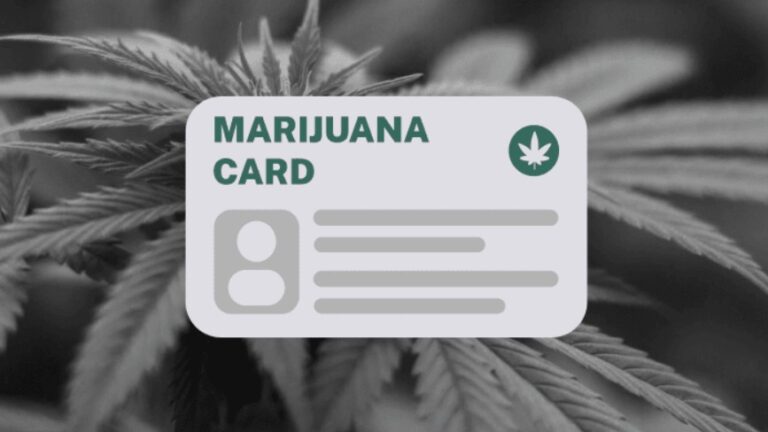Curious about how to access medical marijuana legally? You’re not alone. Millions of individuals across the globe are turning to medical marijuana to manage a variety of health conditions, and getting a medical marijuana card is often the first step toward unlocking these benefits. Navigating the process can be confusing, especially with so many rules and misconceptions out there. This guide will address some of the most common questions about obtaining a medical marijuana card, taking the guesswork out of the process.
What Is a Medical Marijuana Card?
A medical marijuana card is an official form of identification that gives you access to buy, possess, and in some cases, grow marijuana for medical purposes. These cards are issued by the state where you live and are only given to individuals who meet specific medical criteria. Having a card essentially certifies that you have a legitimate medical need for cannabis, which is why it’s recognized in dispensaries and by law enforcement.
Who Is Eligible for a Medical Marijuana Card?
Eligibility criteria can vary depending on where you live, but in general, you must have a qualifying medical condition to apply for a medical marijuana card. These conditions often include chronic pain, anxiety, epilepsy, glaucoma, multiple sclerosis, and cancer, among others. Some states may also allow doctors more discretion in prescribing medical marijuana for conditions they deem appropriate.
It’s worth noting that you’ll typically need documentation from a licensed physician to prove your need for medical marijuana. This can include medical records, diagnostic results, or a formal recommendation from your doctor.
How Do You Apply for a Medical Marijuana Card?
The process of obtaining a medical marijuana card is relatively straightforward, though the details depend on your state’s laws. Here’s a general roadmap of what to expect:
- Consult a Physician
Your first step is to consult a licensed medical professional who can evaluate your condition and determine whether medical marijuana is a suitable treatment for you. Be prepared to discuss your medical history and any treatments you’ve tried in the past.
- Gather Required Documentation
Once your doctor has approved you, they’ll provide a recommendation or certification for medical marijuana. Be sure to collect all necessary documents, including proof of residency and identification, to submit with your application.
- Submit Your Application
Most states have an online portal where you can submit your medical marijuana card application. Along with the required documents, you’ll need to pay an application fee, which can range from $25 to $200 depending on the state.
- Wait for Approval
After submitting your application, you’ll usually have to wait a few weeks for the state to review it. If approved, you’ll receive your medical marijuana card either electronically or through the mail.
What Can You Do With a Medical Marijuana Card?
Owning a medical marijuana card grants you the legal right to purchase cannabis from licensed dispensaries. Depending on your state, it may also allow you to grow a certain number of plants at home or possess higher quantities of cannabis than recreational users. Additionally, medical marijuana cardholders often enjoy reduced taxes on cannabis products compared to recreational customers.
Having a card provides peace of mind, as it offers legal protection in case you’re questioned by law enforcement while possessing medical marijuana. Plus, it allows you to work with knowledgeable dispensary staff who can guide you toward the right products for your specific needs.
Are There Drawbacks to Getting a Medical Marijuana Card?
While having a medical marijuana card has many advantages, there are a few potential downsides to consider. For instance, obtaining the card requires an upfront investment in both time and money, and not all states allow insurance to cover these costs.
Your medical marijuana card is also state-specific, meaning you may face restrictions when traveling with cannabis. Furthermore, the use of medical marijuana is still prohibited under federal law, which could impact situations such as applying for federal jobs or student loans.
Do Medical Marijuana Cards Expire?
Yes, medical marijuana cards do have expiration dates, and you’ll need to renew yours periodically to maintain access to medical cannabis. Typically, cards are valid for one year, but this can vary by state. The renewal process usually involves revisiting your doctor for an updated recommendation and resubmitting an application to your state’s medical marijuana program.
Is a Medical Marijuana Card Right for You?
Deciding whether to get a medical marijuana card is a personal choice that depends on your unique health needs and circumstances. If you are managing a qualifying medical condition and believe medical cannabis could improve your quality of life, obtaining a card might be a worthwhile step. However, it’s essential to weigh the benefits, such as legal access and cost savings, against potential drawbacks like initial expenses and legal limitations. Consulting with your healthcare provider can provide valuable guidance throughout this decision-making process.


